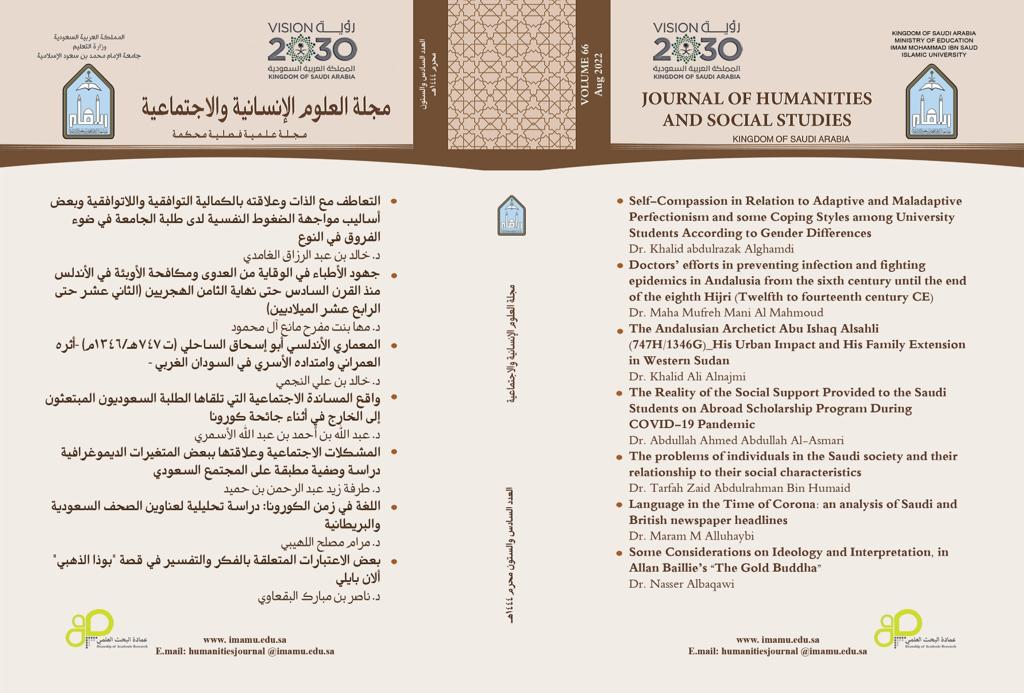Self-Compassion in Relation to Adaptive and Maladaptive Perfectionism and some Coping Styles among University Students According to Gender Differences
Keywords:
self-compassion – adaptive and maladaptive perfectionism – coping styles – psychological stress – university studentsAbstract
This study aimed to investigate self-compassion concerning adaptive and maladaptive perfectionism and some coping styles among university students. It also sought to identify differences in self-compassion according to gender. The sample comprised (280) male and female undergraduates. The tools were the self-compassion scale; prepared (Naff, 2011), translated by the researcher, the psychological stress methods scale prepared by Carver (1997) and translated by Al-Mansoori (2014), and the consensual and incompatible perfectionism scale prepared by Jahin (2010). Results showed a statistically significant positive relationship between self-compassion subscales and those of adaptive perfectionism. Otherwise, there was a statistically significant negative relationship between self-compassion subscales and those of maladaptive perfectionism. There was a statistically significant positive relationship between self-compassion and some positive coping styles. Unlike, there was a statistically significant negative relationship between self-compassion and some negative coping styles. Self-compassion could be predicted through adaptive perfectionism and some coping styles. There were statistically significant differences in some dimensions of self-compassion. Differences were in favor of the females on common humanity, whereas differences in mindfulness were in favor for the males. However, there were no statistically significant differences in self-kindness and total scores of self-compassions.




